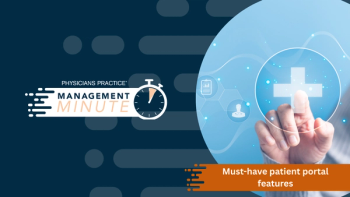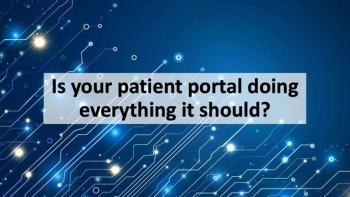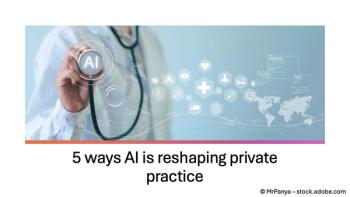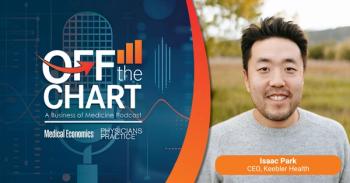
The Case for an HIE: How State's Providers Are Improving Care, Coordination
Health information exchanges (HIE) can improve care coordination. They're also helping providers meet challenging Stage 2 requirements for CMS' meaningful use program. But still, the lion's share of practices still aren't connected to one.
That's less so the case in Kansas, one of a growing number of states that' s recognized for establishing a successful HIE that providers are adopting. And though there are still those reticent doctors who prefer paper, more and more of them are opting to connect to the state' s HIE network for purposes of sharing and exchanging data.
During Tuesday' s HIMSS13 conference session, "Helping to Meet MU2 through an HIE," Laura McCrary, executive director, Kansas Health Information Center, made the pitch for establishing a state HIE, stressing that having a network where data is transmitted and shared is the key to meeting a number of CMS' Stage 2 meaningful use objectives.
In 2011, the Kansas Legislature introduced the Kansas Health Information Technology and Exchange (KHITE) Act. This did several things; among them, it established the certification criteria for HIEs, and provided a means by which individuals may elect to restrict access to their electronic health information stored in the exchange, including mental health information.
In the past two years, thanks in part to strong legislation - the Kansas Health Information Technology and Exchange (KHITE) Act passed in 2011 - Kansas is a case study in how an HIE can transform the lives of patients and the doctors who care for them, said McCrary.
"Our state did a really good job of regulating how health information exchange runs," McCrary told attendees, noting that today more than 200,000 of 2.7 million patients are connected to the state's HIE. "It's growing about 10,000 patients each week."
And while 266 have opted out, many of those people "are opting back in," said McCrary, adding that there have been "some wonderful stories about how the exchange has saved lives" publicized in local media.
But an exchange is only as good as the physicians who use it to share information. That's why Kansas Health Information Center is pushing use of the data exchange to meet Stage 2 meaningful use requirements.
There are many ways using the exchange is helping providers meet meaningful use. But perhaps the best example is how the state's HIE is addressing the most challenging Stage 2 patient engagement objective: one that calls for physicians to "provide patients the ability to view online, download, and transmit their health information within four business days of the information being available to the [provider for] more than 5 percent of unique patients seen by the provider."
To encourage healthcare organizations to engage patients KHIN created a statewide portal that it believes is better than existing standalone ones because it operates on a shared network (it also connects to an increasing number of healthcare entities beyond Kansas' borders, McCrary said). If, say, a hospital patient uses the KHIN portal in lieu of a separate, non-HIE-connected portal, both organizations utilized by the patient (the hospital and the practice or practices) can count that patient toward the 5 percent, Stage 2 requirement.
"If a patient looks at a portal and it's used across multiple providers, every single provider who has provided care for that patient can count it toward their 5 percent as long as the provider is connected to the KHIN network," said McCrary. "Often, patients will look at portal from hospital or from clinic - only one portal. So if the patient is accessing the hospital's [separate] portal, that patient can't count toward the five percent requirement for the provider - even though the patient also visits the practice."
Newsletter
Optimize your practice with the Physicians Practice newsletter, offering management pearls, leadership tips, and business strategies tailored for practice administrators and physicians of any specialty.









